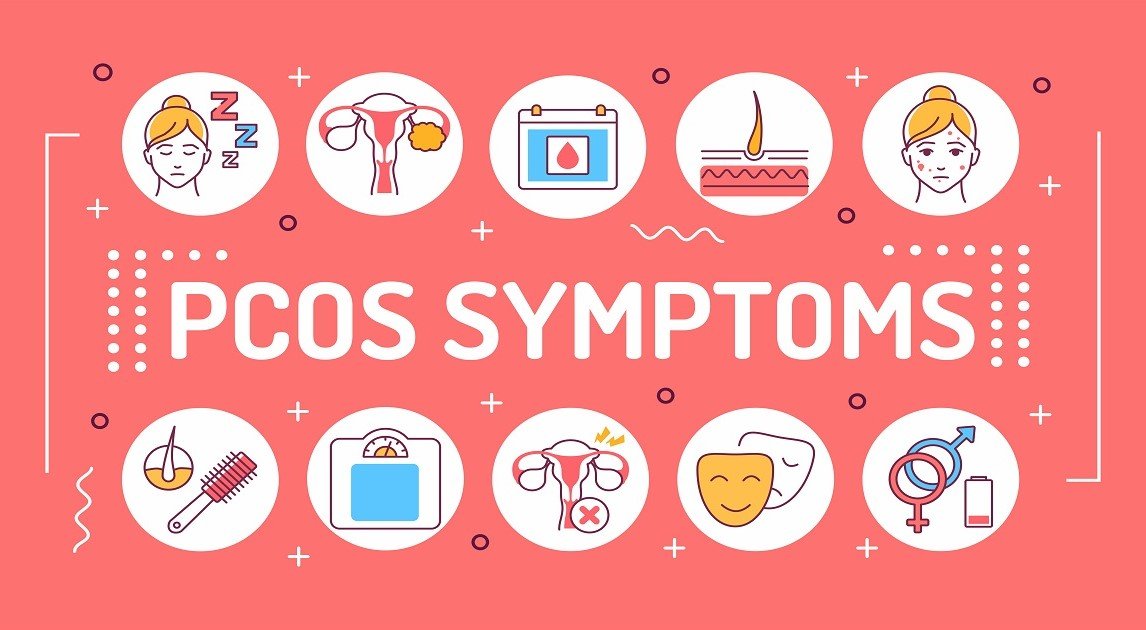PCOS, short for Polycystic Ovary Syndrome, is a prevalent condition characterized by hormonal imbalances that affect the reproductive system. To effectively manage the symptoms of PCOS, healthcare professionals often suggest implementing lifestyle changes. These changes can encompass various aspects such as diet, exercise, stress management, and sleep patterns. By adopting a holistic approach to lifestyle modifications, individuals with PCOS can potentially alleviate their symptoms and improve their overall well-being. It is important to consult with a healthcare provider who can provide personalized guidance and support throughout this journey.
What Is PCOS, or Polycystic Ovary Syndrome?

Six percent to twelve percent of women who are of reproductive age have polycystic ovarian syndrome. Insulin resistance is common in PCOS patients, and they may also have increased amounts of androgens. The hormones known as androgens are found in both men and women. PCOS, or Polycystic Ovary Syndrome, can have various symptoms, such as:
1. Irregular Menstrual Cycle: Women with PCOS may experience irregular periods, including infrequent or prolonged cycles.
2. Hirsutism: Excessive hair growth, particularly on the chin, face, or other areas of the body, is a common symptom of PCOS.
3. Hair Thinning or Hair Loss: Some individuals with PCOS may notice thinning of the hair or even experience hair loss.
4. Skin Darkening: Darkened skin patches, especially in the groin, under the breasts, and along the neck creases, can occur in individuals with PCOS.
5. Acne: Polycystic Ovary Syndrome may contribute to the development of acne on the face, upper back, and chest.
6. Skin Tags: Small flaps of excess skin known as skin tags can appear in the neck area or armpits of individuals with PCOS.
Adapting New Lifestyle for Polycystic Ovary Syndrome
Although there is no known treatment for PCOS, you can control your symptoms by changing your way of life.
Cut back on sugar and carbohydrates

Women with PCOS often experience insulin resistance, leading to ineffective use of insulin by the body. To manage blood sugar levels, a low-sugar and low-carbohydrate diet is recommended. The ideal diet includes a variety of foods from different food groups, such as vegetables, fruits, lean meats, fish, and high-fiber grains. Doctors emphasize consuming foods with a low glycemic index and limiting refined carbohydrates found in processed foods, white flour, rice, potatoes, and sugar. It is also advised to avoid sugary drinks like soda and juice. By controlling carbohydrate intake and choosing foods that promote steady insulin release, individuals can better manage blood sugar levels and overall Polycystic Ovary Syndrome symptoms.
Control weight in PCOS
Women with PCOS tend to be overweight, although not all of them. They could get fat over time. Numerous health issues, such as infertility, type 2 diabetes, and cardiovascular disease, might result from that.
Registered dietitians and nutritionists at NYU Langone can design a nutritious, low-fat diet for you to help you lose weight. They can show you how to log your meals or use tools for calorie counting to keep track of what you consume. Regarding weight loss, it’s important to pay attention to portion sizes.
Exercise consistently
The treatment of Polycystic Ovary Syndrome can benefit greatly from regular exercise. By burning calories and increasing muscle mass, which lowers insulin resistance, it aids in the fight against obesity. Exercise can also help lower cholesterol and other hormone levels, including testosterone levels.













Be First to Comment